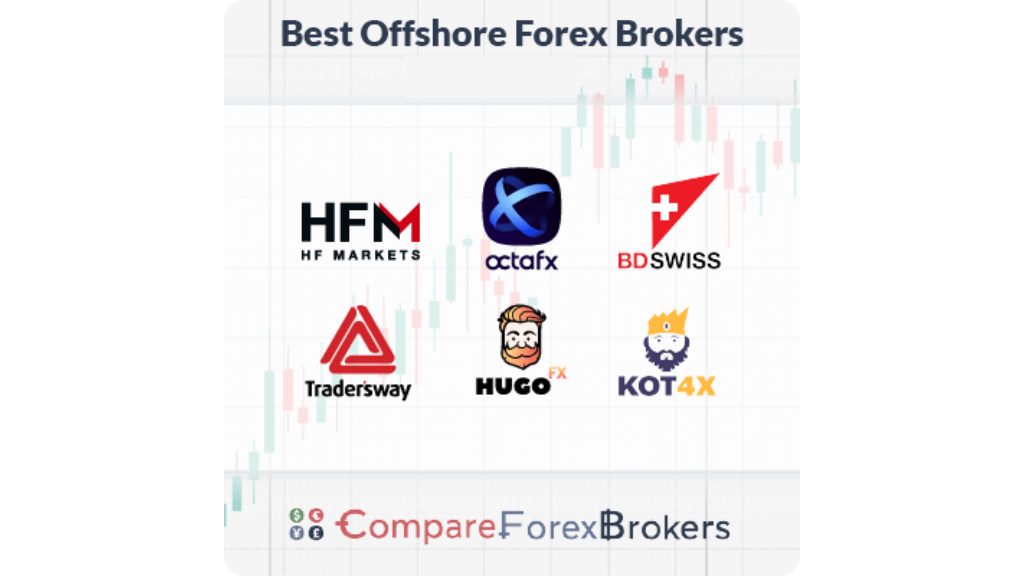Introduction to Offshore Forex Brokers
Offshore forex brokers are entities located outside the trader’s home country, offering trading services in foreign exchange markets. These brokers operate under the regulatory framework of the country where they are registered, often chosen for its favorable tax and regulatory environment. Opting for offshore brokers provides traders with access to global markets and various trading opportunities beyond what local brokers offer.
One of the significant advantages of offshore forex brokers is the potential tax benefits they offer. In many jurisdictions, trading profits made through offshore brokers are not subject to local taxes, allowing traders to maximize their earnings. Additionally, offshore brokers often provide higher leverage options compared to onshore brokers, enabling traders to amplify their trading positions with smaller capital investments.
When selecting an offshore forex broker, traders need to consider several factors. These include regulatory compliance, reputation, trading costs, and the range of services offered. While offshore brokers may offer attractive features, it’s essential to ensure they adhere to regulatory standards and maintain transparency in their operations to safeguard investors’ interests.
Regulatory Environment
The regulatory landscape for offshore forex brokers differs from that of onshore brokers. Offshore jurisdictions often have lenient regulatory requirements, attracting brokers seeking to offer competitive trading conditions. However, this lack of stringent oversight can pose risks for traders, as it may lead to instances of fraud or malpractice.
Understanding the regulatory bodies governing offshore brokers is crucial for traders’ security. Examples of offshore regulatory bodies include the International Financial Services Commission (IFSC), the Financial Services Commission (FSC), the Financial Conduct Authority (FCA), and the Cyprus Securities and Exchange Commission (CySEC). Traders should verify a broker’s regulatory status and ensure it holds a valid license from a reputable jurisdiction.
Compliance with regulatory standards is paramount for offshore forex brokers to maintain their legitimacy and reputation. Traders should prioritize brokers that adhere to regulatory guidelines and implement robust compliance measures to protect investors’ funds and maintain market integrity.
Key Features of Offshore Forex Brokers
Offshore forex brokers offer several key features that attract traders seeking diverse trading opportunities and favorable trading conditions. One of the primary advantages is the potential tax benefits associated with trading through offshore entities. These brokers may operate in jurisdictions with low or zero tax rates on trading profits, allowing traders to retain more of their earnings.
In addition to tax benefits, offshore brokers often provide flexible leverage options, enabling traders to magnify their trading positions with minimal capital outlay. This increased leverage can amplify both profits and losses, making it essential for traders to manage their risk effectively.
Privacy and anonymity are other key features offered by offshore forex brokers. These brokers may prioritize client confidentiality and offer anonymous trading accounts, allowing traders to maintain privacy in their financial transactions. This feature appeals to traders who value discretion and confidentiality in their trading activities.
Offshore brokers also typically offer access to a wide range of asset classes, including forex, commodities, indices, and cryptocurrencies. This diversity allows traders to diversify their portfolios and capitalize on various market opportunities. Additionally, offshore brokers often provide advanced trading platforms with robust features and tools to enhance the trading experience and execute trades efficiently.
Top Offshore Forex Brokers
Several offshore forex brokers stand out for their competitive trading conditions, regulatory compliance, and reliability. These brokers offer a range of services tailored to meet the diverse needs of traders worldwide. Traders should conduct thorough research and due diligence to select the offshore forex broker that best aligns with their trading objectives and preferences. Consider factors such as regulation, reputation, trading costs, and customer support when evaluating different brokers.
Factors to Consider When Choosing an Offshore Forex Broker
Selecting the right offshore forex broker is essential for traders to ensure a positive trading experience and protect their investments. Several factors should be taken into account when evaluating offshore brokers:
Regulation and Licensing: Verify that the broker is regulated by a reputable authority in an offshore jurisdiction. Regulatory oversight helps ensure transparency, fairness, and investor protection in the forex market.
Reputation and Reliability: Research the broker’s reputation and track record in the industry. Look for reviews, testimonials, and independent ratings to assess the broker’s reliability and credibility.
Trading Costs and Fees: Consider the broker’s fee structure, including spreads, commissions, and overnight financing charges. Low trading costs can help maximize profits and minimize expenses for traders.
Customer Support and Service: Evaluate the broker’s customer support quality, availability, and responsiveness. Prompt and efficient customer service is essential for resolving issues and addressing inquiries promptly.
Trading Platforms and Tools: Assess the broker’s trading platforms and tools for their functionality, reliability, and user-friendliness. Look for advanced charting tools, analytical features, and mobile trading capabilities to enhance the trading experience.
Account Types and Minimum Deposits: Check the broker’s account offerings and minimum deposit requirements to ensure they align with your trading preferences and financial capabilities.
Security and Fund Safety
Ensuring the security of funds is paramount when trading with offshore forex brokers. Traders should inquire about the broker’s fund segregation policy, which safeguards client funds by keeping them separate from the broker’s operating capital. Additionally, reputable offshore brokers may offer insurance coverage or participation in compensation schemes to protect clients’ funds in the event of broker insolvency.
Trading Instruments and Markets
Offshore forex brokers typically provide access to a wide range of trading instruments and markets, allowing traders to diversify their portfolios and capitalize on various market opportunities. These instruments may include major, minor, and exotic currency pairs, as well as commodities, indices, and cryptocurrencies. Traders should choose brokers that offer the instruments they wish to trade, along with competitive spreads and trading conditions.
Leverage and Margin Requirements
Offshore forex brokers often offer higher leverage ratios compared to their onshore counterparts, allowing traders to amplify their trading positions with relatively small capital investments. However, increased leverage also magnifies the potential for both profits and losses, making risk management crucial. Traders should understand the broker’s leverage offerings and margin requirements before engaging in leveraged trading to avoid excessive risk exposure.
Trading Execution and Speed
Efficient trading execution and fast order processing are essential for traders to capitalize on market opportunities and execute trades promptly. Offshore brokers typically offer advanced trading platforms equipped with features such as one-click trading, real-time market data, and fast order execution. Traders should choose brokers with reliable infrastructure and robust trading technology to ensure smooth and seamless trading experiences.
Regulatory Oversight and Compliance
While offshore forex brokers operate in jurisdictions with relaxed regulatory requirements, they must still adhere to certain standards to maintain legitimacy and credibility. Traders should verify that the broker is licensed and regulated by a reputable offshore authority and complies with applicable regulations and industry best practices. Regulatory oversight helps protect traders from fraudulent activities and ensures fair and transparent trading practices.
Educational Resources and Support
Access to comprehensive educational resources and support can enhance traders’ knowledge and skills, enabling them to make informed trading decisions. Offshore forex brokers may offer a range of educational materials, including tutorials, webinars, articles, and market analysis, to help traders improve their trading proficiency. Additionally, responsive customer support services are essential for addressing traders’ inquiries and resolving issues promptly.
Risk Management Strategies
Implementing effective risk management strategies is essential for traders to protect their capital and minimize losses in the forex market. Offshore brokers may offer risk management tools such as stop-loss orders, take-profit orders, and guaranteed stop-losses to help traders mitigate risk exposure. Traders should develop and adhere to a disciplined trading plan that includes risk management techniques tailored to their individual risk tolerance and financial goals.
Transparency and Disclosure
Transparency and disclosure are critical aspects of a trustworthy and reliable offshore forex broker. Traders should ensure that the broker maintains transparency in its pricing, execution policies, and terms and conditions. Clear and comprehensive disclosure of fees, charges, and potential conflicts of interest helps foster trust and confidence among traders and ensures fair and transparent trading practices.
Trading Psychology and Emotions
Managing trading psychology and emotions is essential for maintaining discipline and consistency in trading. Offshore brokers may offer resources and tools to help traders cultivate a positive trading mindset, overcome emotional biases, and make rational trading decisions. Traders should practice patience, discipline, and emotional resilience to navigate the challenges of forex trading successfully.
Community and Social Trading
Engaging with a trading community and participating in social trading networks can provide valuable insights, ideas, and support for traders. Offshore brokers may offer social trading platforms that allow traders to interact, share strategies, and replicate trades of experienced traders. Joining trading forums, groups, and communities can help traders stay informed, connected, and motivated on their trading journey.
Conclusion
In conclusion, choosing the best offshore forex broker requires careful consideration of various factors, including security measures, trading instruments, leverage offerings, regulatory compliance, educational resources, risk management tools, transparency, trading psychology, and community engagement. By conducting thorough research, assessing individual needs and preferences, and evaluating broker offerings, traders can identify reputable offshore brokers that meet their requirements and facilitate their trading objectives. With the right broker and a disciplined approach to trading, traders can navigate the forex market with confidence and capitalize on its potential for profit opportunities while managing risk effectively. Offshore forex trading offers flexibility, diversity, and opportunities for growth, making it an attractive option for traders seeking access to global financial markets. However, traders should exercise caution, conduct due diligence, and remain vigilant to protect their capital and maximize their trading success in the dynamic and competitive forex landscape.

